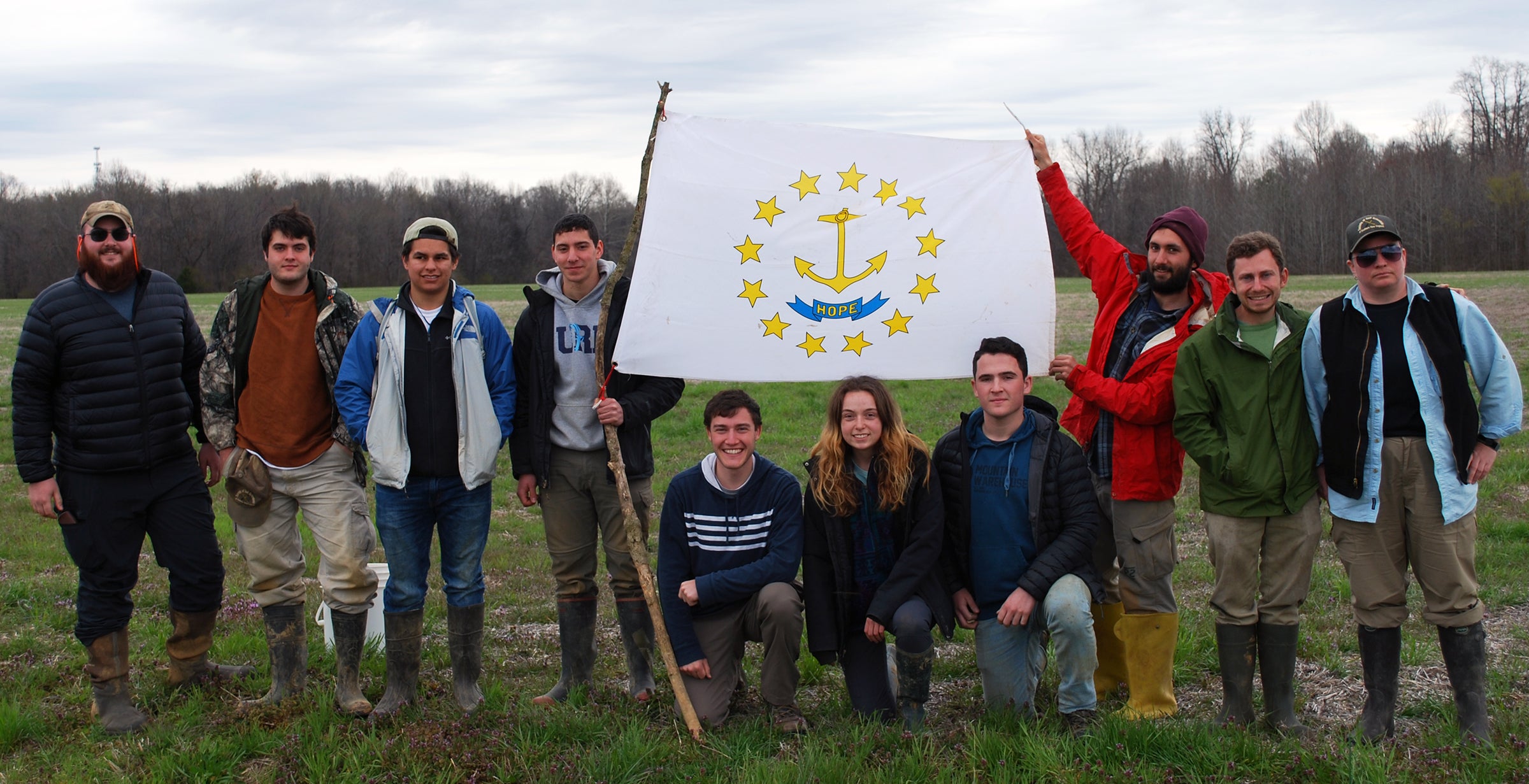KINGSTON, R.I. – April 5, 2018 – A University of Rhode Island senior placed second in the National Collegiate Soils Contest last week in a competition against students from 22 universities around the country. The eight members of the URI team placed ninth overall.
Joseph Loffredo, an environmental science and management major from Foster, R.I., was URI’s top finisher after a long day of classifying soils in three pits dug for the competition at the University of Tennessee at Martin. Senior Jared Cianciolo of Watertown, Conn., finished 19th out of the 164 undergraduate student competitors.
“I’m honestly not sure what exactly I did to do so well,” said Loffredo, who joined the URI soil judging team last fall and was competing in his first national championship. “I was mainly in it for the learning experience and did not expect at all to place second.”
According to Mark Stolt, professor of natural resources science and the advisor to the URI team, soil judging is a contest to correctly identify, evaluate, classify and describe the profiles of soils from pits dug into the ground. Students must climb into five-foot deep pits to identify the soil layers or horizons, describe their properties, classify each soil according to the USDA soil taxonomy, and evaluate their uses. The team and individuals with the most accurate evaluation win. Teams must qualify to compete at the national soils contest by placing in the top three at one of seven regional competitions.
“I really enjoy how hands-on soil judging is,” Loffredo said. “I get to be outside, and I get to use most of my senses to make interpretations. How the soil looks, how it feels, what it sounds like, and sometimes even how it smells can tell me something about the biological, chemical and physical processes going on below my feet.
“The soils in Tennessee are super different than the soils here in Rhode Island, and we only had four days of practice, so I had to learn a lot and adjust myself in a short amount of time,” he added.
Cianciolo, who won the Northeast Collegiate Soil Judging Contest in 2016, said he became interested in soil science during a research project with Stolt as a freshman.
“Soil judging has got to be the fastest way to work on your field skills for describing soils and the landscape,” he said.
Agreeing with Loffredo, Cianciolo called the national contest “a doozy” because the soils in western Tennessee are so different from those in Rhode Island. “They’ve been under ancient oceans five separate times, resulting in the oldest soils there forming from ancient coastal beach-like deposits,” he said. “What was most jarring for me was not seeing a piece of gravel for an entire week, which is unheard of in New England.”
Despite having what he called “a pretty bad week of practice,” Cianciolo said his good performance at the nationals could be chalked up to his experience at five competitions in the last three years and excellent coaching by Stolt and graduate students Thomas Privott and Amber Hardy.
URI has a long record of success in soil judging competitions. In three of the last seven years, a URI student won the individual title at the national competition. URI won the national team championship in 2011 and placed fourth in 2013 and second in 2014.
Upon graduation in May, both Loffredo and Cianciolo are considering careers in environmental consulting or working for a government environmental agency.
“I’m not sure exactly what I want to do,” Loffredo admitted. “There are too many things that interest me. But I could see myself pursuing a career in soils, though I’ve also considered teaching science at the high school level as well. I still have some decisions to make and some research to do.”

